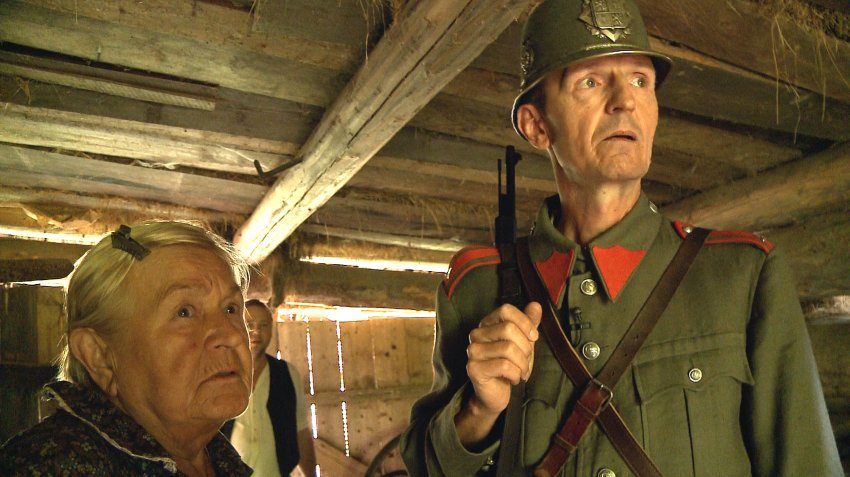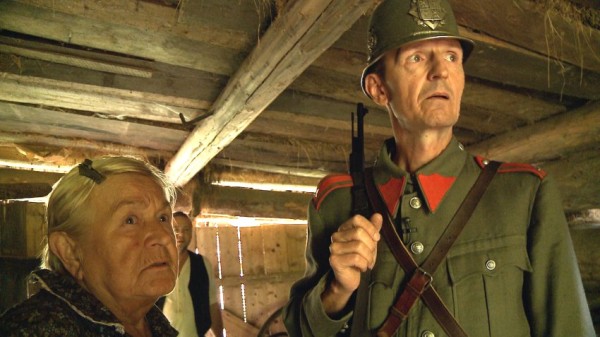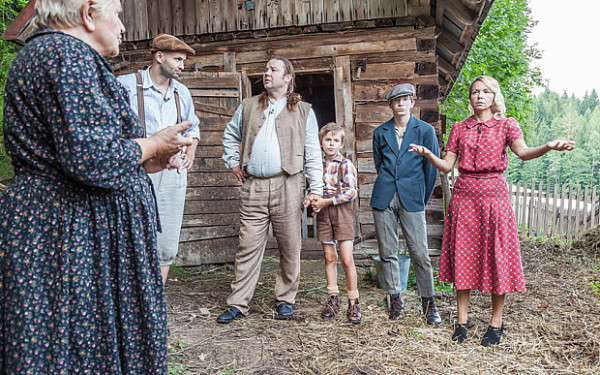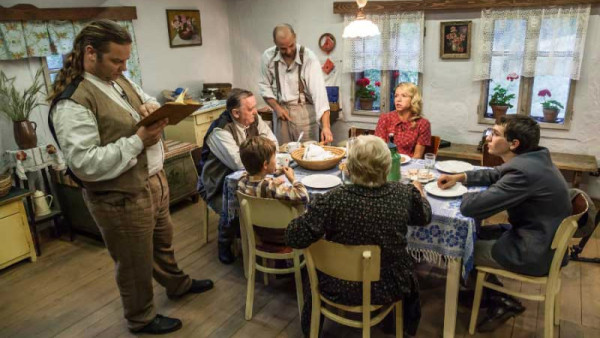
The controversial Czech reality tv series Holiday in the Protectorate proved that controversy can still result in good ratings, and sources on the production staff have already informed us that Friday’s debut of the Nazi Occupation show were well above expected. The producers knew that this type of show would spark enough buzz to get media attention, and it definitely worked as the show has gotten some of the best free promotion it could have dreamed of.
Oftentimes, shows of this nature will draw a large opening audience out of curiosity, but the second airing is the telling part if there’s a major drop off or uptick. This television season, FOX‘s Empire was the only series to continue growing week after week. We’ll see if that turns out to be the case for this one.
This series asks a modern family to go back in time to live as they might have had to under Nazi rule, to show the brutality ordinary people had to endure during German occupation.
Holiday in the Protectorate asks one three-generation family to live as if it were 1939 to 1945. The family was selected from among 200 candidates after a “rigorous audition,” show officials said.
Their struggles will range from normal tasks, such as harvesting crops and milking cows, to specifically wartime demands — sewing blackout curtains, fortifying a basement air-raid shelter, and dealing with food rationing and frequent hunger. The family will also live through “simulated air-raids, intimidation by Nazi informants and interrogations by the Gestapo,” shows officials said.
Eight one hour-long episodes of Holiday in the Protectorate began airing on May 23 and will continue through June 13. Remember, other countries don’t seem to draw out their reality shows as long as we do in American….Big Brother anyone.
While the horrors the family will face are only re-enactments of what confronted Czech citizens during World War II, their reward will be real: 1 million Czech Krunas, worth a bit more than $40,000, if they survive the two-month ordeal.
The show, produced by Czech Television, will surround the 20th century household with a realistic setting of old-fashioned furniture and period-accurate costumes, matched to those of the Protectorate of Bohemia and Moravia — an ethnic Czech puppet state set up by Nazi Germany after it occupied and absorbed Czechoslovakia in March of 1939. Professional actors play German soldiers and Gestapo informers. There will be no running water, no refrigerator and even the rare old currency of the Nazi mini-state will be used.
The show was shot under the supervision of a “war cabinet” composed of two historians, two psychologists and an architect who saw that everything about the show seems authentic to historical reality.
“I was inspired by the horrific wartime stories of my maternal grandparents, who lived in a small town in the highlands of Bohemia. I wanted people to see what hardships ordinary people had to go through to survive Nazi occupation,” Zora Cejnkova, the show’s director, said. “It was interesting to see how people make decisions under such psychological pressure, in front of TV cameras.”
But Czech Television, the show’s producer, has drawn criticism, for trivializing the real tragedies of WWII. Critics wonder what audiences would be entertained by watching people being intimidated by Nazi soldiers and their informers.
“What are they going to do next? Big Brother Auschwitz?” wrote one critic.
“I tried to show that period with seriousness and with utter respect for its tragic character,” Cejnkova has said in media interviews.
“Of course we cannot completely recreate the real danger, but the aim is to show life as it was, and,” she said, “if people re-live those times, perhaps future conflicts can be prevented.”
“The point about the World War II period is that there was always a possibility of violent death for everyone, something that is impossible to replicate artificially,” said Jan Kral, a car designer. “Holiday in the Protectorate recreated some inconveniences of the Nazi occupation, but the real fear was death. The show replicates wartime living the way a Formula One computer game replicates being Michael Shumacher — you get everything except the risk.”
And that, Kral said, “is essential.”
I’ve not seen a copy of the show yet, so I will withhold my judgement until viewing, but in the meantime, if it’s a big hit, don’t be shocked to see more of this theme popping up. I’m keeping my fingers crossed that someone doesn’t try a southern version of this idea if you know what I mean….I will not be signing up for that.




